Basic Policies on Human Resources Programs
The JSR Group has adopted the following policies as models for its organization and personnel systems and implements a variety of programs in accordance with these policies.
- (1) “Freedom” and “discipline” are well balanced, and the JSR Group is developing mechanisms and a corporate culture under the Course of Action's 4Cs to enable managers and junior staff to grow together, all employees to accurately perceive and solve issues, and organizational capacity to be maintained and enhanced
- (2) Promote globalization of JSR Corporation's employees, develop a globalized workforce in the Group, and train and manage Group human resources on a global level
- (3) Human resources are becoming increasingly diverse (in terms of national origin, culture, gender, values, etc.) and we are generating synergies throughout the JSR Group as a result of making the most of this diversity
Course of Action (The 4Cs)
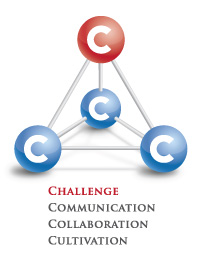
- Challenge
-
All employees of JSR Group should share a common, global focus and desire to succeed. Employees should feel confident to autonomously take on new challenges, learning from successes while viewing setbacks as opportunities to learn, grow and improve.
- Communication
- All employees should feel comfortable and confident maintaining open lines of bi-directional communication at all levels within the JSR Group. Employees should strive for organizational transparency through direct conversations as the best means to share value and achieve common goals, especially in the face of growth and diversification.
- Collaboration
- Employees will work together in the spirit of cooperation valuing common, corporate goals over internal or departmental barriers. Employees will also be encouraged to actively collaborate with external resources and not be bound to conventional ideas.
- Cultivation
- All employees will cultivate an environment that supports bi-directional communication between managers and subordinates and provides opportunities to develop together as individuals and as members of productive, supportive teams.
Recruitment and Promotion of Diverse Human Resources
The JSR Group engages in a variety of business activities around the world. We believe that making the most of diverse human resources is extremely important to the implementation of our wide-ranging business strategies.
We see encouraging diversity as a management strategy and are currently working to promote management focused on the diversity of human resources and respect for and application of the variety of values arising from that diversity.
Basic Data on JSR's Employees
| As of March 31, 2011 | ||||
|---|---|---|---|---|
| Male | Female | Total | ||
| Employees | 2,748 | 398 | 3,146 | |
| New employees hired | Recent graduates1 | 83 | 13 | 96 |
| Mid-career employees | 24 | 5 | 29 | |
| Average No. of years of continuous employment | 16.0 | 12.6 | 15.6 | |
| 1. Employees who joined the company on April 1, 2011 | ||||
| FY | 2009 | 2010 | 2011 | |
| Separation rate2 | 4.3 % | 4.7 % | 4.8 % | |
| 2. Percentage of employees who have left JSR within three years | ||||
Promoting Diversity in the Workplace
By employing a diverse workforce not only in terms of race and gender but also experience and values, we aim to break away from entrenched, homogeneous values and ways of thinking to create an organization that facilitates contrasting values, bold ideas, and creative synergies, and where innovation is highly likely to take place, thereby boosting our competitiveness as a company.
Since an organizational atmosphere open to diverse values and ways of working is instrumental to our goal of creating diverse workplaces, we will promote such an atmosphere alongside work-life management.
Active Support for Female Employees
As part of our efforts to actively support female employees and to facilitate transfers from clerical positions to career-track positions, since FY2008 (April 1, 2007 to March 31, 2008) we have significantly reduced the number of years of continuous employment required to apply for such transfers and have encouraged particularly motivated employees to transfer to career-track positions.
Since FY2010, 45 employees have transferred to career-track positions, and there are now 162 female employees in career-track positions (as of April 1, 2011), representing approximately 40% of all female employees.
The mid-term business plan sets out not only qualitative tasks but also quantitative tasks (interim targets rather than final targets) and, to express the strong determination of management and gain the understanding and cooperation of all employees, it sets numerical targets for the percentages of women hired out of college and women in management.
Numerical targets for female employee percentages
| Percentages of female employees hired |
2012 | College graduate engineering positions: College graduate administrative positions: |
15-20% 40-50% |
|---|---|---|---|
| Percentage of women in managerial positions |
2015 | 5% | |
Number of Female Employees Transferring from Clerical Positions to Career-track Positions
| FY | 2010 | 2011 | 2012 | Total |
|---|---|---|---|---|
| Employees | 13 | 13 | 19 | 45 |
Career Re-entry System
In April 2008, JSR instituted a program that allows former employees who left JSR due to marriage, childbirth, nursing care responsibilities, transfer of a spouse, or other reason to register with the company for rehiring when additional personnel are needed.
| FY | 2009 | 2010 | 2011 |
|---|---|---|---|
| Registered | 7 | 8 | 8 |
| Rehired | 2 | 0 | 4 |
Re-employment Program (re-employment of retirees)
This is a program that allows employees who have reached the mandatory retirement age to continue employment. Prior to retirement, employees complete a survey concerning their desire to continue employment, and those employees who wish to continue working and whose personnel evaluation immediately prior to retirement is at a certain level or higher, are rehired.
| FY | 2009 | 2010 | 2011 |
|---|---|---|---|
| Employees | 28 | 36 | 39 |
| *Last year's reported figure was an interim result; it has been updated in this year's report. | |||
Employment of People with Disabilities
JSR's employment rate for people with disabilities was 1.64% (the statutory employment rate: 1.8%) in FY2011. As JSR is a chemical industry manufacturer, much of the work in research laboratories and manufacturing sites is dangerous, requiring the handling of hazardous materials and working with rotating equipment, which limits the involvement of people with disabilities. However, we are continuing our efforts to employ people with disabilities.
| FY | 2009 | 2010 | 2011 |
|---|---|---|---|
| Employment rate | 1.80 % | 1.78 % | 1.64 % |
Employing Foreign Nationals
The number of foreign nationals employed by the JSR Group on a consolidated basis in FY2011 was 859 (16.5% of all employees). As part of our push to globalize employees at JSR Corporation we are making efforts to hire more foreign nationals and make better use of their skills by participating in company information sessions for foreign exchange students and accepting employees seconded from overseas subsidiaries.
Compliance with the Worker Dispatching Law (Temporary Workers Law)
In response to the notice on “Strict Response to Unlawful Assignments under the 26 Specialized Occupations to Evade Time Restrictions” issued on February 8, 2010 by the Demand and Supply Adjustment Division of the Employment Security Bureau, we investigated the work responsibilities and tasks of temporary work agencies and work locations for general temporary workers at JSR Group, and confirmed that there are no problems with the content of these contracts.
Work-Life Management
We promote work-life management, the practice of organizing one's life to achieve a balance between work and other life activities, to help employees not only develop work-related skills but also become actively involved in areas outside the company (e.g., social and community groups, family, volunteering, self-development, and hobbies) and become well-rounded individuals, achieve higher self-fulfillment and satisfaction, and tap into such resources in their work.
To do so, we encourage all employees to closely manage their personal time and maintain a regular work schedule. We also have in place various system to support flexible work styles and measures to assist them in balancing work with having and raising children and caring for elderly family members.
Because work-life management shares certain commonalities with diversity-management in the sense that it seeks to create an organization with a diverse workforce, we will promote work-life management alongside activities to promote diversity with the aim to develop an organizational atmosphere that is open to diverse values and various styles of working.
Support for Flexible Work Styles and Overview of Work-Life Management Programs
System |
Outline |
Result (No. of people) |
||
|---|---|---|---|---|
| FY2009 | FY2010 | FY2011 | ||
Maternity leave (before/after delivery) |
Employees can take six weeks of leave prior to childbirth and eight weeks after birth. The Mutual Aid Association provides 50% of the employee's base salary for the first five days of leave. | 23 | 14 | 23 |
Child-care leave |
Employees can take leave until children are 18 months old. | 26 (26 women, 0 men) |
15 (15 women, 0 men) |
24 (19 women, 5 men) |
| Interviewing employees taking child-care leave | Upon request by employees taking child-care leave, an interview is conducted between the employee and his or her supervisor to allay concerns and resolve issues between them as well as to facilitate the employee's return to work. | 11 | 12 | 10 |
Shorter working hours |
Working hours can be shortened by up to two hours per day. Eligible employees: pregnant employees, employees with children up to three years of age, employees in dual-earner households with a child in third grade or below, and employees providing nursing care to a family member. *Nursing-care shorter working hours system started in FY2010 |
30 |
40 (child-care 39, nursing-care 1) |
62 (child-care 59, nursing-care 3) |
Working from home |
Employees can work from home one day per week. Eligible employees: pregnant employees, employees in dual-earner households with a child of elementary school age or younger and employees providing nursing care to a family member. *Nursing-care shorter working hours system started in FY2010 |
6 |
7 (child-care 7, nursing-care 0) |
10 (child-care 9, nursing-care 1) |
Maternity leave re-instatement allowance |
Employees who return to work following maternity leave or child-care leave of at least one month receive a grant of 200,000 yen per child following the completion of six months' continuous service. | 9 | 22 | 24 |
| Baby sitting allowance | Employees are reimbursed half the cost of daycare on working days in cases where both parents work | 3 | 2 | 2 |
| Nursing-care leave and extended leave | Employees can take nursing-care leave two times per year (for a total leave time of up to two years). Up to 20 days of nursing-care leave can be obtained for taking care of a family member, and this may be extended to up to 24 months using extended leave. |
4 (leave 3, extended leave 1) |
3 (leave 3, extended leave 0) |
4 (leave 4, extended leave 0) |
| Loan of mobile devices capable of accessing the JSR internal network | Employees on maternity leave, child-care leave, or nursing-care leave may borrow a mobile device that enables them to access the JSR internal network from a home PC. | 4 | 4 | 8 |
| Volunteer leave (created in FY2010) | Employees can take up to five days of paid leave a year if social contribution activities require taking time off from work. | ― | 2 (8 total days taken) |
4 4 (7 total days taken) |
| Discretionary work | Applies to employees in research positions. | ― | 436 (as of April 2010) |
446 (as of April 2011) |
| Flex-time | There have been no core times at JSR since 1996. This program applies to employees not in shift-work positions. | ― | ― | ― |
| Family-care leave | In FY2010, the scope of family-care leave was extended from infants to family members sharing the same residence. Employees can take up to 10 days of leave annually to provide nursing care and accompany family members to the hospital, medical examinations, vaccinations, etc. | ― | ― | ― |
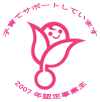 |
In August 2007, JSR acquired the Next Generation Accreditation Mark (nicknamed “Kurumin”) issued by the Minister of Health, Labour and Welfare. This accreditation is granted when an enterprise successfully provides a working environment that helps employees to raise a family, as well as balance work and home needs. The guidelines are in accordance with the “Next Generation Nurturing Support Measures Promotion Law.” |
| Next Generation Accreditation Mark “Kurumin” |
“WLM Guidebook”

“WLM Guidebook”
The WLM Guidebook provides examples of employees who are practicing work-life management in different workplaces. We produced this publication together with the JSR Workers Union and distributed it to all employees with the goal of encouraging them to think of the work-life management concept as more personally relevant.
Work-Family Balance Guidebook
JSR distributes a guidebook that describes the various internal and external programs that support working parents.
Healthy Mind and Body

A calisthenics class
To support employees in improving their health, JSR carries out twice-yearly general physical examinations, special physical examinations, and lifestyle-related disease checkups, and provides corporate sports facilities and fitness club memberships.
JSR has taken initiatives to promote mental health since 1998. These include counseling for employees in a location of their choice from the external agency, Human Frontier Counseling. To help prevent lifestyle-related diseases, since FY2009 we have been implementing metabolic syndrome checkups and individual health guidance for employees who require active support.
Communicating with Employees
Employee Satisfaction Surveys
Since 2003 we have periodically conducted surveys on employees' awareness to monitor employees' satisfaction of the company and their workplaces and their motivation towards work. We then provide all employees with feedback on the survey results, and use the results when implementing policies and designing programs. In FY2011, we added the corporate philosophy, diversity, and work-life management to the list of items for assessing employee understanding and awareness, and are now using the results to better promote these areas.
Employee Membership in the JSR Workers Union
The JSR Workers Union is an organization formed by JSR employees. All permanent employees are members of the union (including regular employees and seconded employees) based on a union-ship contract.
Communicating with the JSR Workers Union
JSR holds a labor agreement with the JSR Workers Union based on the principles of trust and integrity.
In negotiations between management and employee representatives, the president and directors in charge of individual business segments carry out repeated discussions with the labor union to exchange opinions with and direct questions toward each employee level and each business site regarding the operating environment, business conditions, major company policies, and labor union activities. In doing so we strive to maintain healthy relations with employees through a deepening of mutual understanding and trust regarding workplace environments, safety, important company policies, and labor union activities.
Human Resource Development
We will accelerate our human resource development measures in order to strengthen our organizational capacity with the understanding that developing human resources is the greatest priority for achieving sustainable, long-term growth of the corporation and based on a development policy that will continue to emphasize the autonomous growth of our employees.
In particular, we will work to enhance individual and organizational capacities by implementing “Cultivation,” a new policy in our Course of Action, and, based on a policy focused on human resource development, by redeveloping our corporate culture to encourage employees to teach and learn from each other. As a key goal, we will also strengthen the international communication abilities of our employees.
Human Resource Development Policy
- Respect each employee's desire for personal growth and provide adequate support for employees who take the initiative to raise their skills and develop their careers.
- Based on the idea that the development of employee skills is the foundation of a company, make “growth through work” a primary consideration and, from a long-term perspective, conduct systematic, planned, and continuous training at all group companies to support this.
Types of Personnel Sought by JSR
All Employees
- A professional who is competitive on a global level in all areas of his or her responsibility.
- An individual who is willing to take on new challenges and who responds flexibly to changes in the environment, supporting innovation and advancement without settling for the status quo.
- A team player with high ethical standards who emphasizes communication, collaboration, cultivation, and taking on challenges.
- Supervisors who can delegate work and responsibilities to their junior staff while also leading by example, always mindful of organizational management and human resource development.
- Leaders who effectively oversee the achievement of organizational goals and can also lead reforms.
Management and Specialists
Specific Measures
- Continue to implement programs to realize early development of the leaders of tomorrow through the Next Leaders Development Committee
- Promote “Cultivation” activities as part of corporate cultural reform
- Implement OJT and Off-JT training with a greater emphasis on motivation, a critical ingredient for the development of employee skills and knowledge
- Systematically implement coaching skills training for all management positions
- Enhance language and cultural programs in international communication (e.g., intensive course in English, overseas training in China)
- Continue and expand training to support the passing on of technological expertise and development of manufacturing skills common to all Group plants.
- Continuation of specialized skill training for young employees.
Various Training Programs
JSR conducts a variety of training programs to raise the skills of its employees.
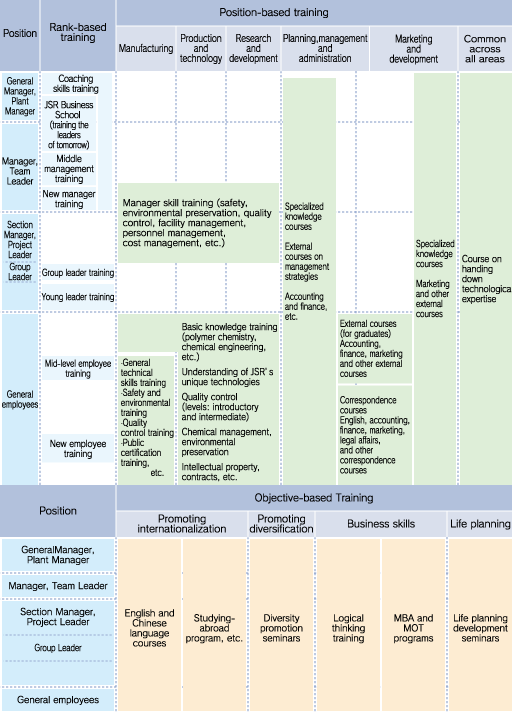
Utilization of Training Centers
Making the best use of the training centers we established near our plants to support the continuing education of our employees, we will focus on further refining our strengths in technology and human resources by passing on technical skills at manufacturing sites and expanding employee education programs.
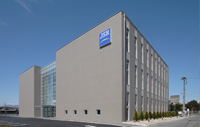
Yokkaichi Training Center
![]()
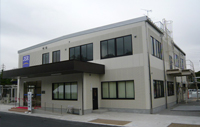
Chiba Training Center
![]()
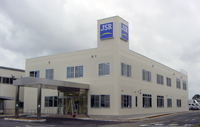
Kashima Training Center
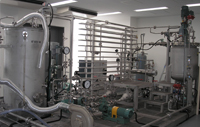
“Miniature Plant” in Yokkaichi Training Center
Return to the top of the page ▲

